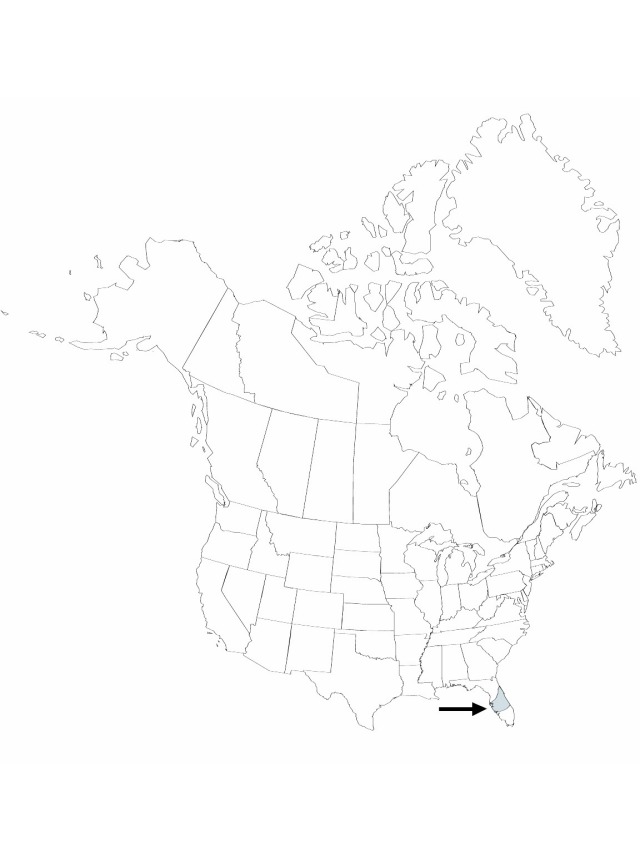Tillandsia ×floridana
Phytologia 57:175. 1985.
Plants usually clustering, flowering to 6 dm. Stems short. Leaves 20–50, many-ranked, erect to slightly spreading, gray, 20–50 × 0.5–1 cm, coarsely appressed-scaly; sheath dark chestnut brown toward base, triangular, flat, not forming pseudobulb, to 2.5 cm wide; blade narrowly linear-triangular, channeled, leathery, margins involute, apex attenuate. Inflorescences: scape conspicuous, erect, 15–30 cm, 3–6 mm diam.; bracts densely imbricate, erect, like leaves but gradually smaller; sheath of bracts narrowing gradually into blade; spikes erect, 2-pinnate, narrowly elliptic, compressed, 2–7 × 1.5 cm, apex acute; lateral branches 2–10. Floral bracts imbricate, erect, uniformly red to rose, broad (covering all or most of rachis, rachis not visible at anthesis), elliptic, keeled apically, 2–2.5 cm, thin, base not visible at anthesis, apex acute, surfaces scaly distally, becoming sparsely scaly toward base. Flowers 10–40, conspicuous; sepals with adaxial pair connate, lanceolate, keeled, 1.7–2.2 cm, thin-leathery, veined, apex acute, surfaces slightly scaly; corolla tubular, petals erect, violet, ligulate, to 4.5 cm; stamens exserted; stigma exserted, conduplicate-spiral. Fruits to 4 cm.
Phenology: Flowering spring–summer.
Habitat: Epiphytic in swamps and river forests
Elevation: 0–30 m
Distribution

Fla.
Discussion
This species is often confused with Tillandsia bartramii Elliott and T. simulata Small, which share its distribution and narrow leaves. Its probable parentage is T. bartramii Elliott × T. fasciculata Swartz.
Selected References
None.